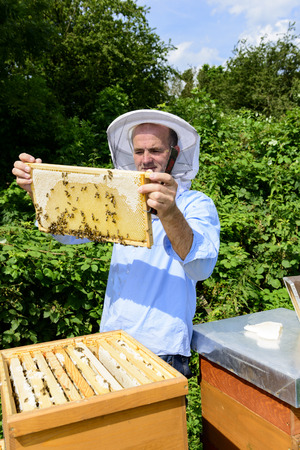Active Texas Honey Bee Caretakers Can Receive Tax Exemptions
April 08, 2019
In recent years, beekeeping has grown into a popular hobby for many and into a cause for others. For beekeepers in the state of Texas, however, they may be pleased to discovery that, as January 1, 2012, a bill was turned into law that makes beekeepers eligible to receive an agricultural exemption on their property taxes. Agricultural use includes using land to keep or raise honey bee colonies for pollination or producing food or similar products with commercial worth, provided the land being used is under 20 acres or over five acres. This bill was originally drafted by Dennis Herbert.
“The bill I drafted was more extensive, but this is what came out as the law during the 2011 legislature,” Herbert said. “I started considering the bill and its need in 2010. For 33 years, I ran the Fort Hood Natural Resource Branch, and I was painfully aware of the plight of thehoney bee and the annual losses it was encountering. They were losing about 40 to 60 percent annually. I knew they couldn’t sustain these losses. It seemed reasonable to me that there needed many more beekeepers spread out over the state, not another commercial beekeeper in one spot.”
After becoming a beekeeper in Weatherford, Texas in 2009, Jason Smith worked to grow his business until it became JC’s Honey Bees, which has benefited considerably from the bee exemptions. “We have benefited from ag valuation on our property due to beekeeping, as we are using our bees to produce honey, start colonies, and for pollination,” says Smith. “I think the implementation of this law is great. Honey bees are an important part of agriculture as not only pollinators, but producers of food.”
According to Herbert, the number of beekeepers in the state of Texas has grown nearly 200 percent. Honey bee losses still occur, but there are many more beekeepers now, with the Texas Beekeepers Association having about 60 clubs throughout the state. Smith even thinks there’s plenty of room for new beekeepers beyond that. “I think it would be great if others, especially the next generation, were interested in it. We want to help new beekeepers feel comfortable with honey bees and increase their chances of being successful,” Smith said.
Regarding the tax exemptions for keeping honey bees, Smith believes it’s important to a degree, saying, “It helps with an incentive to successfully keep honey bees, but keep in mind that one could not just place the required number of bees on their property and not take care of them. Counties want you to be productive in order to keep the ag valuation.”


.jpg)



